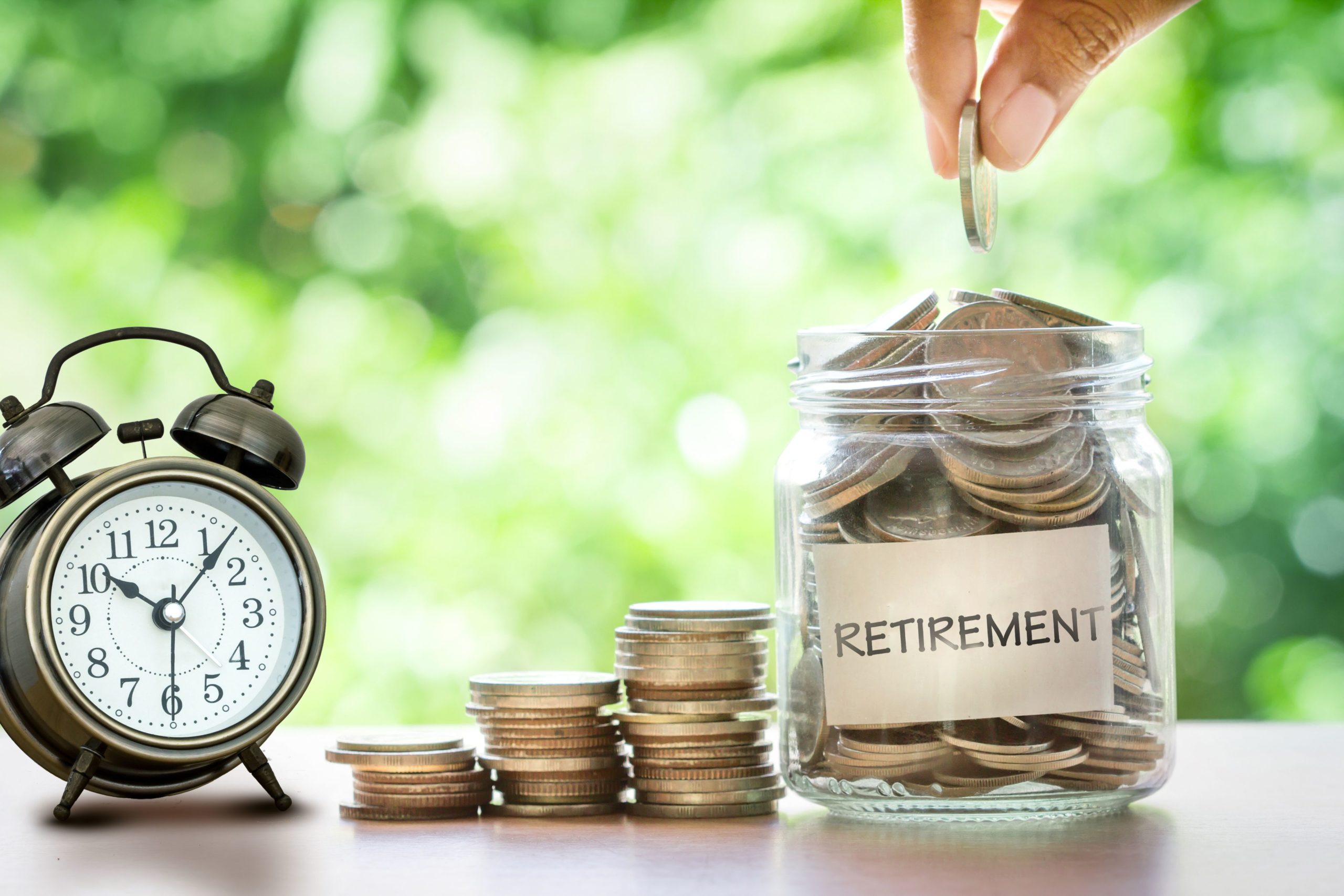
Most workplace and private pension funds are not at risk if you go bankrupt. However any monthly income you receive could be used as part of a payment towards your debts.
Included in this article:
- What happens to pension payments you currently get?
- Is your overall fund at risk?
- Can you be forced to take money out?
Rather speak to a person? Call 0800 077 6180 or fill in the form below and we’ll call you
What happens to pension payments you currently get if you go bankrupt?
If you go bankrupt and are already receiving pension payments (whether state, employer or private), you must declare these. The money can be used as part of the calculation to determine if you can afford to make ongoing payments towards your debts.
All your sources of income are added together to form a monthly total. This includes pension payments and money you receive from any work you are continuing to do. If your pension is received quarterly or annually this is divided down to get a monthly figure.
Your monthly living expenses are then deducted from your income. If there is any surplus the Official Receiver can ask for this to be paid to them for 3 years in the form of an IPA (Income Payment Agreement).
Pension payments you receive can’t be taken from you in full if you go bankrupt. However they must be included in your income calculation.
Will your overall pension fund be at risk after you go bankrupt?
It has been long established in law that money you have already paid into most pension funds is exempt from bankruptcy. This is specifically covered by the Welfare Reform and Pensions Act 1999 – Introduced May 2000.
Because of this, once you are bankrupt (as long as the Order date is after May 2000) the Official Receiver can’t claim any money you have already paid into a pension. This cash is safe and will still be available for you when you retire. The only exception is if you paid unusually large amounts into the fund just before going bankrupt.
You are also allowed to continue making reasonable payments into your pension. However over payments into an employer’s scheme or excessive payments into a personal fund will not be allowed.
If you went bankrupt before May 2000 any fund you had at that time can be claimed by the Official Receiver. This is the case even if the money only becomes available years later. There is no time limit.
Can you be forced to take money from your fund?
When you reach the age of 55 you are currently allowed to withdraw funds from a personal pension fund. This has important implications if you are 55 or over during the year you are bankrupt.
If you chose to draw cash from your pension while bankrupt, the funds you receive must be treated as a windfall. As such these can be taken by the Official Receiver and used to pay your debts. To avoid this you must wait until after you are discharged before drawing any funds.
Having said that the OR can’t force you to withdraw funds from your pension or start taking an income from it. This was confirmed by the Court of Appeal in a case known as Horton v Henry (Oct 16).
Want further advice or assistance with bankruptcy? Call us (0800 077 6180) or complete the form below.
Arrange a call with a Bankruptcy Expert
Privacy Policy
Your information will be held in strictest confidence and used to contact you by our internal team only. We will never share your details with any third party without your permission.



Hi – a general question: if I was made bankrupt in 2018 and discharged 12 months later, are you saying that even though it’s been discharged, HMRC could still take money from a pension? That seems a bit like serving a prison sentence and paying your debt to society and then getting further sentences passed down from the courts once you’ve been released.
Hi Kate M
It think it is possible that you mis-read the article.
As long as you went bankrupt after May 2000 (which you did) the official receiver can’t touch your pension unless you are already retired and getting a monthly payment. In those circumstances, the monthly payment is considered as part of your income.
After you are discharged, you can draw money from your pension if you wish and it is yours to keep (as long as you are 55 or over). If you reach an age where you start drawing a pension after you are discharged, this income is also yours to keep.
I am going to declare bankruptcy as I have lost my job due to ill health. I am thinking about taking both a lump sum and then ongoing monthly payments from my work pension can this be taken?
Hi Debra
You need to be very careful. If you take a lump sum from your pension and then go bankrupt, you are likely to lose the money. Any significant cash lump sum you have on the day you go bankrupt can be taken from you by the official receiver.
If you just start taking monthly payments and no lump sum, this would be better. The monthly pension payment you receive would have to be declared in your bankruptcy as income. However the official receiver would have to allow you to keep this to pay your monthly living expenses. They are only able to take money from you each month if it is surplus to your reasonable requirements.
It would be ideal if you could defer taking your pension until after you are discharged from bankruptcy in 12 months. This way you could then keep any lump sum for yourself. The official receiver has no right to take such money from you if you get it after the date of discharge.
hi there..My name is Chris. I have a private pension but no other assets. I’m 53.Should i go bankrupt before im 55 if my debts are so enormous which i cant repay and wish to keep my pension..Thanks
Hi Chris
If you have a private pension whether you need to go bankrupt before or after you are 55 will depend on the size of the pension pot. If it is greater than your debt you will have to go bankrupt before you can access it (at 55). If you wait until afterwards, you will not be insolvent and the Adjudicator would rightly refuse your application.
Where your pot is less that your total debt, it will not make any difference whether you wait or not.
Remember, if you are older than 55 when you go bankrupt (or become 55 during the year), you should not take any lump sums from the pension until you are discharged. If you did then these would be treated as a windfall and would have to be handed over to the official receiver.